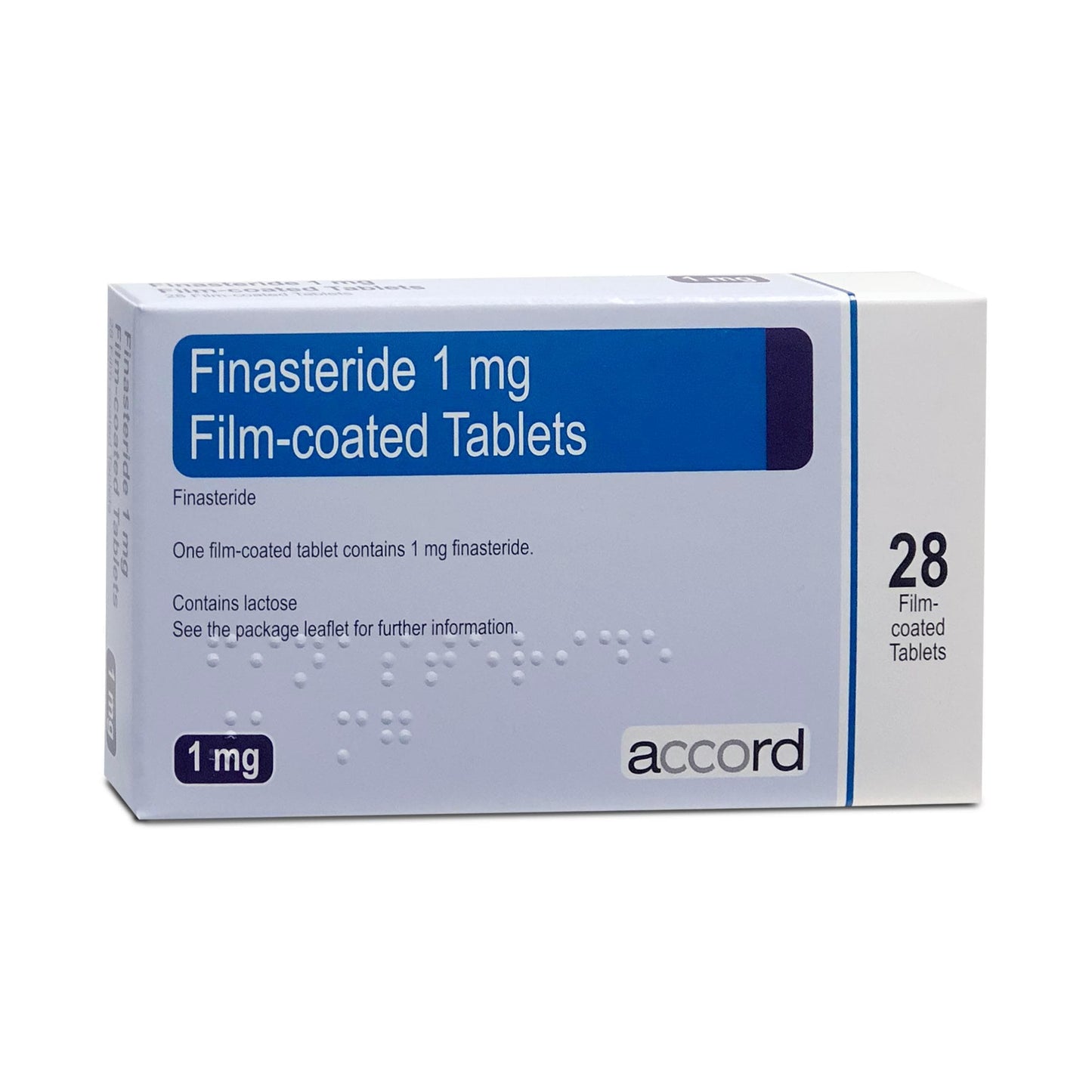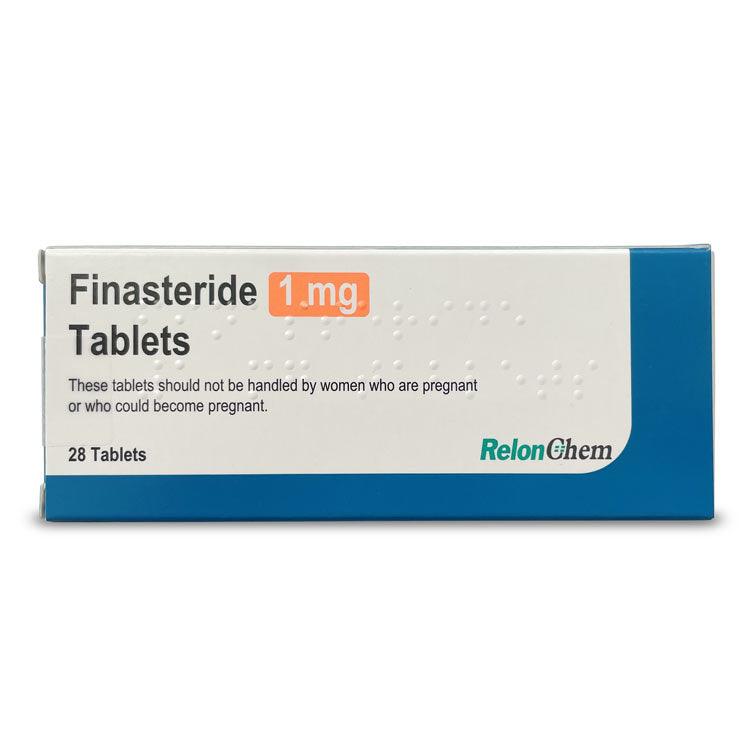- Consultation
- Treatment
- Payment
Treatment options
-
Next day delivery
-
Discreet & confidential
-
UK licensed medication
Finasteride
Finasteride is a prescription medication used to treat male pattern baldness and benign prostatic hyperplasia. It...
Finasteride is a prescription medication used to treat male pattern baldness and benign prostatic hyperplasia. It is an inhibitor of the enzyme 5 alpha-reductase which metabolises testosterone to a more potent hormone dihydrotestosterone. The dose recommended to treat male pattern baldness is 1mg daily. It is usually taken once a day, and is not recommended for women and children.
Finasteride needs to be taken daily for 3-6 months to see any visible benefit.
PRICE CHECKER
| 1mg | |
| 28 tablets | £17.99 |
| 84 tablets | £44.99 |
PRICE CHECKER










Description of Finasteride
Side Effects of Finasteride
Finasteride Patient Leaflet
Additional Information
How to take Finasteride?
Warnings and Precautions of Finasteride
Delivery
Product reviews

How it works
This is a quick process and should only take 1 - 2 minutes. All of your answers are confidential, and just like a GP consultation, you will know what treatment is most suitable for you upon completion.
Once you have completed the quick online form, select the treatment option most suitable to you and checkout securely. If you are eligible for treatment you will be asked to upload an ID.
Welzo will send you order to one of its authorised partner as we only act as a referral service. A medical professional will review your answers to the online medical consultation and determine if it’s safe to prescribe and what treatments are available.
Frequently Asked Questions about Finasteride
Are there any permanent side effects for Finasteride?
Can Finasteride be used by women?
Which Finasteride tablet it best?
How do I order my medication?
Can I cancel or return my order?
Can you buy Finasteride 1mg over the counter?
How does Finasteride work for hair loss?
Is this medication suitable for me?
How is the medication delivered?

Why Welzo
Prescription medication is shipped out for next-day delivery in discreet packaging.
Welzo only works with UK-based pharmacies. All our medication is authentic and issued by GPhC-registered pharmacies and prescribers.
We put you in touch with clinicians and health experts that can support you along every step of your treatment journey.













 Rated Excellent by 26,523+ Reviews
Rated Excellent by 26,523+ Reviews